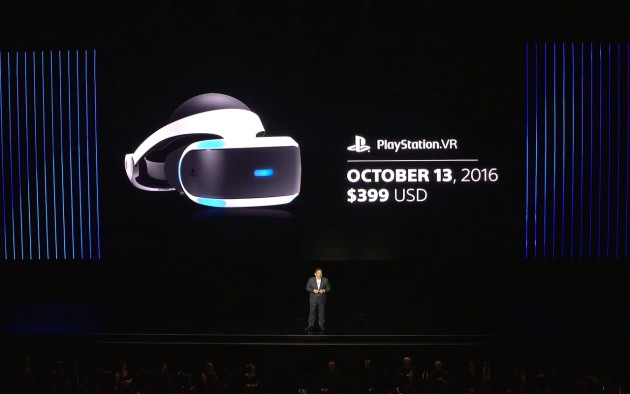Heading into this year’s E3 gaming event, there was a general awareness that virtual reality would take center stage. Rumours of market-disrupting new consoles built to support VR were coming thick and fast, while hints of big-name franchises being adapted for virtual reality were also occupying plenty of headlines. Yet with all of the E3 press conferences now out of the way, and with gamers trying things out on the show floor, it’s becoming clear that VR has made even more of an impression than we anticipated.
Though it sounds obvious in hindsight, it’s the big-name franchises that have thrown a fair few wrenches in the works. Although Hollywood has been a keen advocate for using VR to represent key franchises like The Avengers, Ghostbusters and more, the mainstream gaming industry has proven to be a little more hesitant. If the past couple of days have shown anything, it’s that this hesitancy is fading away in a hurry.
Both Sony and Ubisoft have managed to snag huge entertainment franchises for their own virtual reality gaming experiences. A newly announced Star Trek game from Ubisoft is the perfect example; a beloved universe transferred into a fan-pleasing videogame that’s sure to turn a huge number of fresh eyes towards the Rift, Vive and PSVR.
Sony, on the other hand, has led with both Batman and Star Wars - arguably two of the biggest brands in the world today. VR games for both these franchises will be released exclusively on Sony’s PlayStation headset, yet another attempt at drawing ever more attention to the company’s big bet on VR. That exclusivity, by the way, is a whole separate issue that’s ignited over the course of E3.
In reality though, these largely novel experiences are unlikely to keep gamers coming back to VR, and probably won’t attract the majority of the ‘hardcore’ gaming audience that companies like Sony and Oculus are currently banking on.
The gaming community has been fairly clear about its desire to see extensive, fully-fledged, AAA-style virtual reality games. What was perhaps more interesting and surprising at this year’s E3 was the rather direct response to that desire, especially from Sony. The next full Resident Evil game will be playable with PSVR, Capcom being one of the first publishers to devote their entire game to virtual reality, as opposed to a spin-off or small VR segment.
They’re also releasing Farpoint, a sci-fi first-person shooter built specifically for virtual reality. That’s all without even mentioning Bethesda’s attempt at converting Fallout 4 into a VR game. It may not be a remotely finished project yet, but it’s a clear sign that big players in the gaming industry are well and truly on board with VR.
Even Microsoft, who has mostly publicly avoided virtual reality over the past few years (despite working on plenty of projects behind the scenes), are showing signs of change. The tech giant announced on Monday they are currently engineering a brand new Xbox console with a specific focus on running both 4K and VR. The same is also true for Sony, while even Nintendo’s next device is rumoured to include virtual reality.
It may come as a surprise to some that it has taken this long for the mainstream segment of the gaming industry to catch up with the likes of Oculus and HTC/Valve, but the simple fact of the matter is that for high-value companies VR isn’t a risk anymore. Demand for VR among gamers has grown immensely as more and more games and experiences prove just how good it can be.
You only need to look at the incredible number of VR games currently being shown at E3 to see how much growth has taken place over the past year. There are a sizable number of VR games being shown by Sony alone, with near-countless others being displayed on PC.
The gaming industry may well have laid the foundations for virtual reality, but it’s taken a few years for the biggest players to realise that there’s A LOT of potential in this new medium. Increased focus from the likes of Microsoft, Sony and perhaps even Nintendo is only going to help the VR industry reach new heights. We’re well and truly on board with this newfound spirit, and we only expect it to grow exponentially over the coming months and years.
If you're interested in seeing a variety of the VR games on display at this year's E3, we've compiled most of the trailers below:




